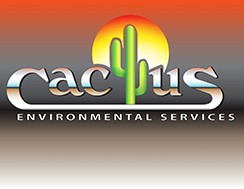Services For Any Need
We proudly handle any and all environmental management needs, from waste disposal and recycling, to environmental remediation and tank cleanings.
Cactus Environmental works with clients in all industries including oil and gas, large industrial manufacturers and government agencies. Our technical field personnel are OSHA HAZWOPER-trained and are available to assist on projects of any size and scope. Customers can count on Cactus for jobs to be completed in a timely and cost effective manner.
Locations Served
Headquartered in Dallas, Texas, we regularly provide service for all of Texas, Oklahoma, Louisiana, and Arkansas. Our crews respond to spills and perform jobs all over the United States.
Cactus Environmental News
We wish to keep you informed and provide you with important information that you may need to know about the Environmental Industry and report our most recent successes.
Below is a recent example from one of many successful jobs. Hover over the photo and slide the pictures to see before and after photos.

Image Credit: Adwo/ Shutterstock










